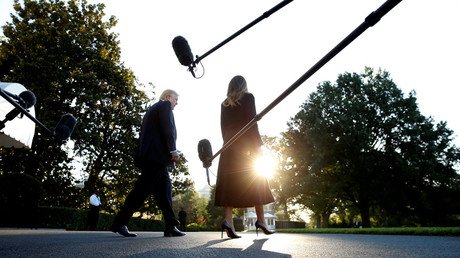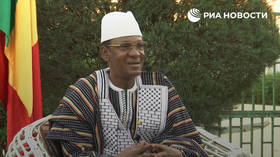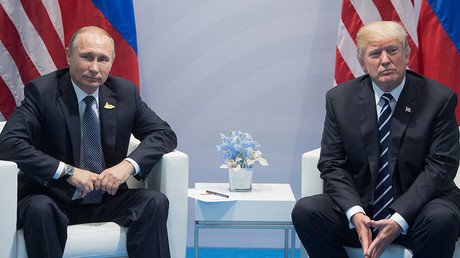Devin Nunes is a ‘Russian agent’ & other ways media peddle ‘Russiagate’ fables
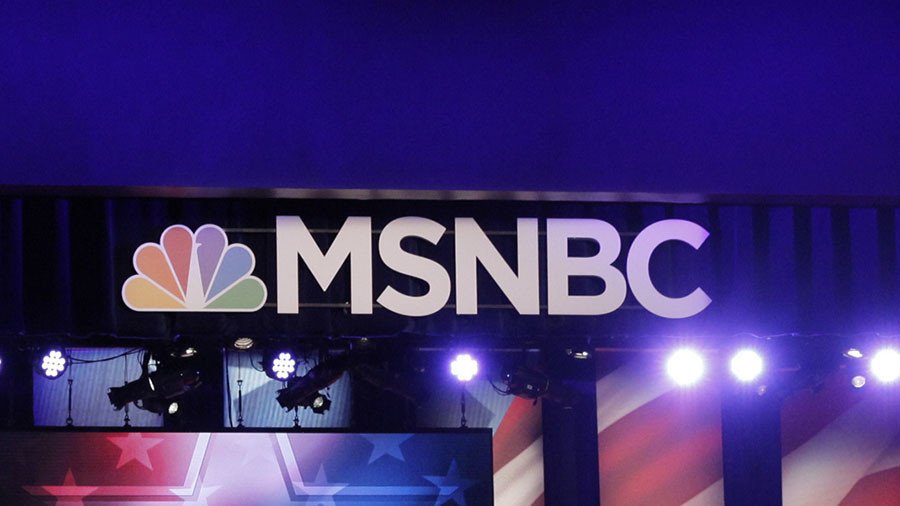
Just when you think fake news about Russia could not get any more bizarre, mainstream media outshines itself, again. These days, no story about Russia is too wild to print.
The following is a short list of the many Russia conspiracy stories now littering the landscape ever since fictional tales of the ‘Russian bogeyman’ seized the American imagination.
Since it has become practically an article of faith among many media pundits that President Donald Trump is a Kremlin puppet, it would not be amiss for them to suggest the same about other high-ranking Republicans.
So, was anybody really surprised when MSNBC ‘analyst’ John Heilemann suggested that Republican congressman Devin Nunes, who serves as Chairman of the House Intelligence Committee, has been “compromised by the Russians?”
In an interview with Democratic Senator Chris Murphy, Heilemann ventured so far into the realms of conspiracy theory folklore that he was forced to concede his question was “ridiculous and absurd.” But he plodded ahead relentlessly anyway.
“Is it possible that the Republican chairman of the House Intel Committee has been compromised by the Russians?” Heilemann asked with a perfectly straight face. “Is it possible that we actually have a Russian agent running the House Intel Committee on the Republican side?”
The question appeared to have stumped Murphy as he stumbled and stammered during his response. “I-I-I-I-I-hope that’s not the case and I certainly have no information to suggest that it is,” he said. Heilemann, however, was having none of it, referring to unnamed “people in the intelligence community” who purportedly think exactly as Heilemann does.
“Doesn’t his behavior speak of that though,” the 'analyst' pressed on, no longer concerned that his question was patently absurd. “I’m not the first person who’s raised this. He’s behaving like someone who’s compromised and there are people in the intelligence community and others with great expertise in this area who look at him and say, ‘That guy’s been compromised.’”
Murphy would only say there are Republicans who “instinctively act in a way to protect their president.” Whatever that means. Later, Heilemann presented the very same question in exactly the same fashion to another Democratic congressman, Eric Swalwell, with the same result.
Non-news on Nunes continues…
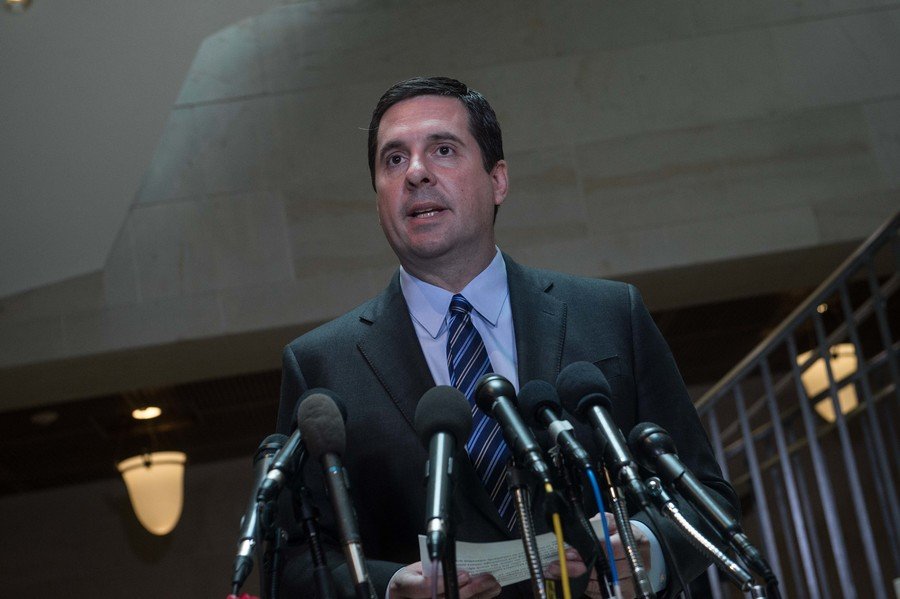
The horrific Heilemann episode was just one media fiasco that Nunes would be forced to endure. This week, the Daily Beast wrote a story about the now-infamous Memo Man, entitled: “Did Devin Nunes Work With White House on Anti-FBI Memo? ‘Far as I Know, No.’”
The story opens with the assertion that the House Intelligence Committee Chair “refused to answer behind closed doors if he coordinated with the president’s team on his report blasting Rosenstein, Comey, and McCabe.”
The article said that Rep. Mike Quigley, a Democrat, asked Nunes if he had communicated with the White House when crafting the memo. “Nunes made a few comments that didn’t answer the question before finally responding, ‘I’m not answering,’” the Daily Beast reported, citing anonymous sources.
Once again, there’s just one problem with that version of events. The quote attributed to Nunes by the Daily Beast – “I’m not answering” – appears nowhere in the exchange according to a transcript of the meeting released later.
The Federalist summarized the glaringly fake news by saying: “Once again, reporters got burned by believing anonymous Democrats on the House Permanent Select Committee on Intelligence.”
Now if the mainstream media is so ready to pass off false news on a high-ranking US official, what chance does Russia have in getting a fair go? The odds, little to none.
Flimsy Flynn allegations
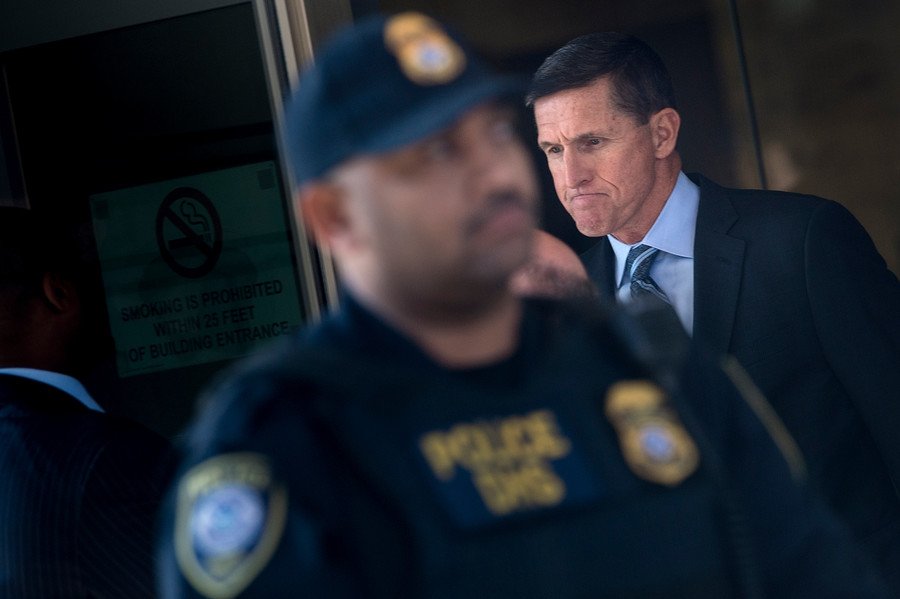
It is a notable rarity these days that Western mainstream media will suffer any consequences for breaking the rules of journalism and circulating unsubstantiated news, especially when it comes to Russia. That is precisely what made the massive fallout from a recent ABC News nothing burger story about Russia so, well, delicious.
On December 1, ABC News ace investigative reporter Brian Ross stated that an anonymous source had confided that a close associate of retired general Michael Flynn, who briefly served as Trump's National Security Advisor, was ready to testify that the US president had “directed him to make contact with the Russians” during the 2016 presidential campaign.
The news reverberated around the world like a thunderbolt, even helping to knock 350 points off of the Dow Jones Industrial Average.
Ross later corrected the report on ABC News’ 'World News Tonight,' clarifying that the source who had provided the information was mistaken, and that Trump was actually president-elect at the time he asked Flynn to contact Russia.
But the damage was already done.
Then White House Press Secretary Sean Spicer said ABC “news” owes it viewers an apology. Calling false reporting a “clarification” is a cop out and just another reason for the decline in trust in the the media.
.@ABC “news” owes it viewers an apology. Calling false reporting a “clarification” is a cop out and just another reason for the decline in trust of the media
— Sean Spicer (@seanspicer) December 2, 2017
Ross was slapped with a four-week suspension without pay. In other words, a little vacation.
Sweet but not quite 17
Anyone who watched the US presidential debates between Hillary Clinton and Trump is familiar with the claim that all 17 US intelligence agencies agreed that Russia was behind the hack of Democratic emails in an effort to influence the 2016 election in favor of Republican candidate Trump.
Once again, the media fudged its facts, this time committing a rather unforgivable arithmetic error.
As The New York Times was forced to admit in a correction, dated June 29, 2017: “The assessment was made by four intelligence agencies — the Office of the Director of National Intelligence, the Central Intelligence Agency, the Federal Bureau of Investigation and the National Security Agency. The assessment was not approved by all 17 organizations in the American intelligence community.”
It bears repeating, though, that at least one of those organizations – the FBI – reportedly features prominently in the promised memo to be released by Nunes sometime this week. Whether that document will provide evidence to suggest some level of collusion against Trump – and, by extension, Russia – remains to be seen.
WashPo worried in can’t find Russian hackers… in Germany
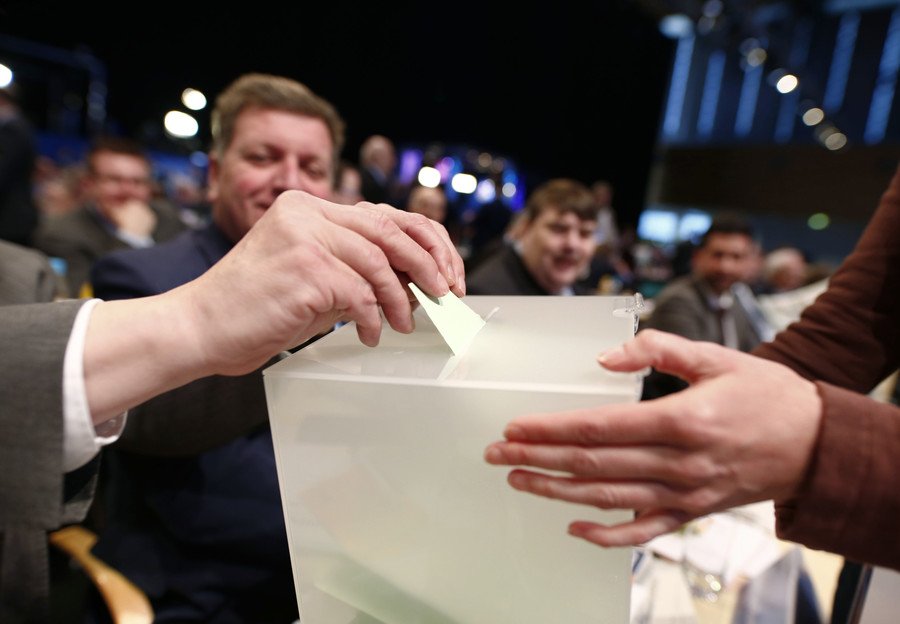
And as if to provide the world with assurances that the American media is seemingly going back to its fledgling stages of development, the Washington Post, in September, ran a story on the eve of German elections that worriedly wondered: “Where are the Russians?”
So, as Germans were preparing to head to the polls, the Washington Post, not willing to let the fairytale be easily forgotten, appeared very concerned about the whereabouts of the 'Russian hackers.'
“Have Germany’s defensive measures… actually succeeded,” the preeminent promulgator of pulp fiction asked. “Or has Russia decided to pull back, reckoning that the costs of antagonizing Merkel outweigh the benefits?”
The one theory the newspaper failed to consider is that Russia just might be telling the truth when it says it did not meddle in the US election, or any other democratic process for that matter. But that would mean many politicians being forced to face the prospect that they are just not as popular with their people as they would like to believe they are.

